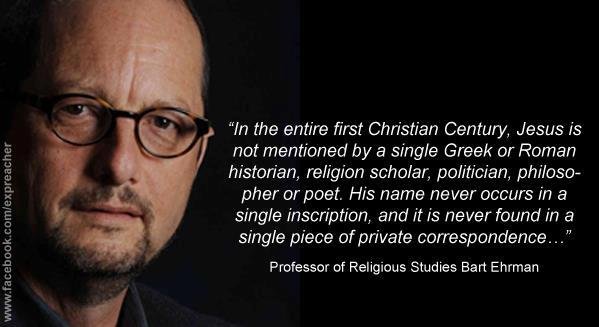
If there are contradictions in a book found in the Bible that means that the common fundamentalist understanding that the text is inerrant is almost certainly wrong. I have tried to word that statement carefully. I’ve noticed that often in these kinds of discussions, people don’t listen carefully to wording that is careful. So let me stress what I am saying, by highlighting the key words: The common fundamentalist understanding that the text is inerrant is almost certainly wrong.
Contradictions would show that ONE way of understanding the inspiration of the Bible is probably wrong – the common fundamentalist understanding of the inspiration of Scripture is probably (not certainly; though I would say almost certainly) wrong. That does NOT necessarily mean that the Bible is not inspired. It means that the common fundamentalist understanding of inspiration is probably wrong.
This common fundamentalist understanding is that the Bible has no mistakes of any kind. No scientific mistakes (the earth was created in six days; there really was an Adam and Eve; God really did make the sun stand still in the Book of Joshua; and so on); no historical mistakes (there really was a Tower of Babel, Moses really did lead millions of Israelites out of Egypt at the Exodus; there really was a census of the entire Roman world for which everyone had to register in the ancestral home during the reigns of Caesar Augustus in Rome and Quirinius in Syria; and so on) — no actual contradictions or discrepancies of any kind.
In this view, anything that seems like a mistake or a contradiction only seems to be. It’s not really a mistake. There is an explanation for everything, because God made sure that the Bible would be completely without error, a perfect revelation of the past and of his will to his people.
There are different ways various fundamentalists have gotten to this understanding of things over the years. For example, to pick just two options: some think that God actually dictated the words of Scripture to the various authors; others think that God dictated the thoughts of the authors and made sure that even if they wrote things down in their own words none of the words were in error or contradiction. There are a number of ways to explain inerrancy, but the basic point, in this common fundamentalist understanding is that the words – however they got on the page – are without error.
— Bart Ehrman, Are Contradictions the Real Point, June 27, 2017
If you want to read the entire article on Dr. Ehrman’s blog, you will need to have a membership. Cost? $24.95 per year, with all proceeds going to charity. I am a member, and I find the regular blog entries by Dr. Ehrman to be enlightening and helpful.
Books by Bart Ehrman
The Triumph of Christianity: How a Forbidden Religion Swept the World
Misquoting Jesus: The Story Behind Who Changed the Bible and Why
How Jesus Became God : the Exaltation of a Jewish Preacher from Galilee
Did Jesus Exist?: The Historical Argument for Jesus of Nazareth
Forged: Writing in the Name of God–Why the Bible’s Authors Are Not Who We Think They Are
God’s Problem: How the Bible Fails to Answer Our Most Important Question — Why We Suffer

When I was in fundamentalist Christianity, we were told that the Bible was “God-breathed” to the writers. The writers were just the tool, the pen if you will, to record the words from God. As a kid, of course, I pictured God breathing down the neck of sone bearded old guy in a robe as the guy furiously scribbled down the words of God.